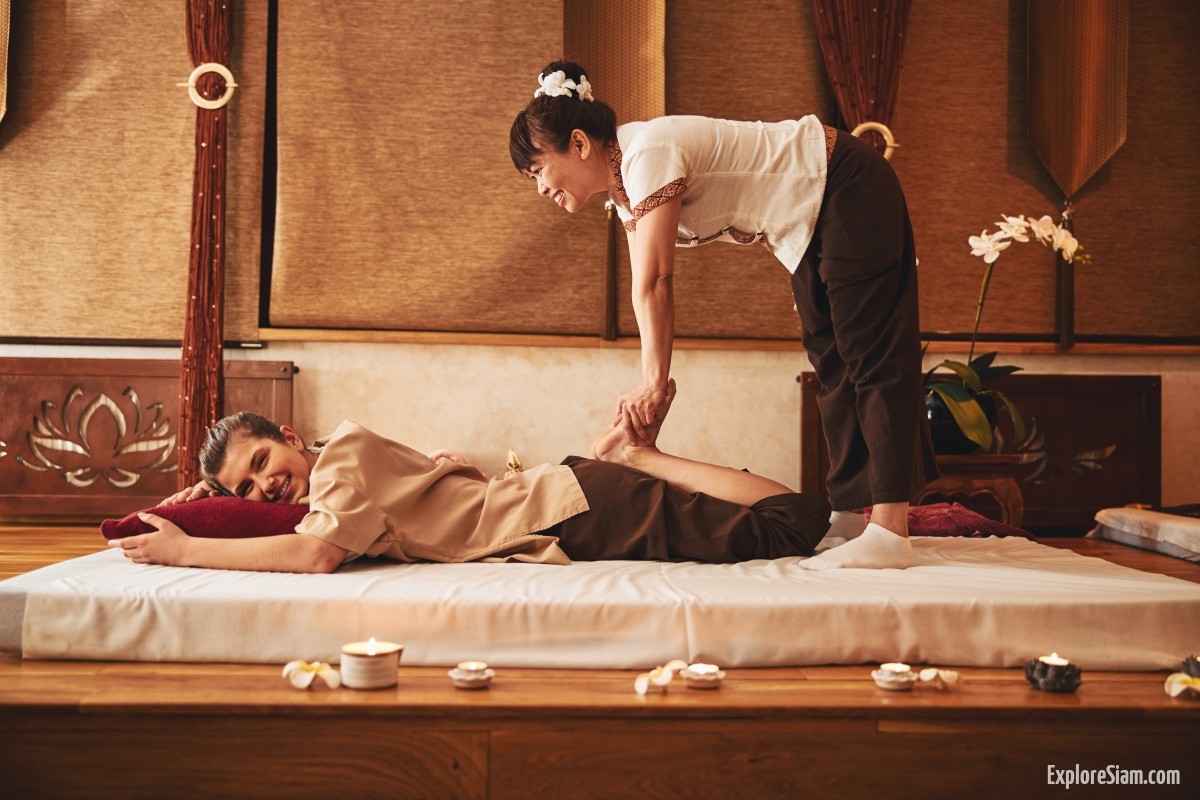Thai massage, known as “Nuad Thai” in its native language, is an ancient healing practice that dates back over 2,500 years. Rooted in the rich cultural and spiritual traditions of Thailand, this unique form of bodywork offers a profound pathway to health and well-being. Unlike Western massage techniques, which primarily focus on muscle relaxation and circulation, Thai massage encompasses a holistic approach, aiming to balance the body, mind, and spirit through a blend of physical and energetic healing methods.
The origins of Thai massage are deeply intertwined with the history of Thai medicine and Buddhism. It is believed that this practice was developed by Jivaka Kumar Bhaccha, a contemporary of the Buddha and his personal physician. Known as the “Father Doctor” in Thailand, Jivaka’s teachings and techniques were passed down through generations of monks and practitioners, evolving into the comprehensive healing system we know today. Traditionally, Thai massage was practiced in temples and was considered a sacred art form, closely associated with the teachings of Buddhism and the principles of compassion and mindfulness.
At the core of Thai massage is the concept of “Sen” lines, which are similar to the meridians in Chinese medicine or the nadis in Ayurvedic medicine. These energy pathways run throughout the body and are believed to be channels through which life force, or “Prana,” flows. When these pathways are blocked or imbalanced, it can lead to physical and emotional discomfort. Thai massage aims to clear these blockages and restore the natural flow of energy, promoting overall health and harmony.
A typical Thai massage session involves a combination of acupressure, stretching, and deep rhythmic compressions. Unlike Western massage, which is usually performed on a table, Thai massage is typically conducted on a mat on the floor. The recipient remains fully clothed, and no oils or lotions are used. The practitioner uses their hands, thumbs, elbows, knees, and feet to apply pressure along the Sen lines and guide the recipient through a series of yoga-like stretches. This unique blend of techniques not only alleviates muscle tension and improves flexibility but also stimulates the body’s energy flow and enhances mental clarity.
One of the most distinctive aspects of Thai massage is its emphasis on the breath and mindfulness. Throughout the session, both the practitioner and the recipient are encouraged to maintain a focus on their breathing, fostering a state of deep relaxation and meditative awareness. This mindful approach helps to deepen the connection between the body and mind, allowing the recipient to fully experience the therapeutic benefits of the massage.
The benefits of Thai massage are extensive and well-documented. Physically, it can help to relieve muscle tension, improve joint mobility, increase circulation, and boost the immune system. The stretching and acupressure techniques also promote better posture and alignment, reducing the risk of chronic pain and injuries. Additionally, the deep relaxation and stress relief provided by Thai massage have a positive impact on mental health, reducing anxiety and depression and enhancing overall emotional well-being.
Beyond its physical and mental benefits, Thai massage also has a profound spiritual dimension. By fostering a sense of mindfulness and inner peace, it helps individuals to reconnect with their inner selves and cultivate a greater awareness of their bodies and minds. This holistic approach to healing is what sets Thai massage apart from other forms of bodywork and makes it a truly transformative experience.
In recent years, Thai massage has gained international recognition and popularity. Many people around the world have embraced this ancient healing practice as a natural and effective way to enhance their health and well-being. Despite its growing popularity, however, it is important to remember that Thai massage is not just a physical therapy but also a deeply spiritual practice with a rich cultural heritage. Practitioners and recipients alike are encouraged to approach it with respect and reverence, honoring its origins and traditions.
In conclusion, Thai massage is much more than a simple bodywork technique. It is a holistic healing system that addresses the physical, mental, and spiritual aspects of health. By balancing the body’s energy flow, promoting relaxation and mindfulness, and fostering a deep connection between the body and mind, Thai massage offers a unique and powerful pathway to health and well-being. Whether you are seeking relief from physical pain, a way to reduce stress and anxiety, or a deeper spiritual connection, Thai massage provides a timeless and effective solution. Embrace this ancient art and discover the profound benefits it can bring to your life.





